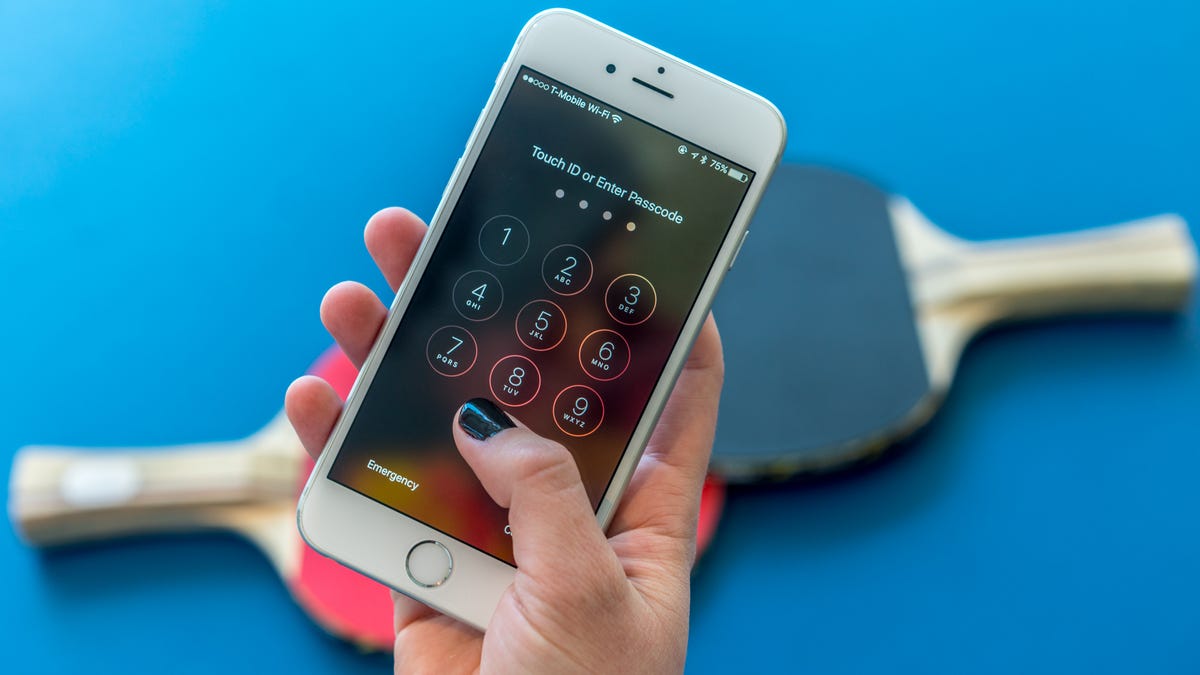FBI spills iPhone hacking secret to senators
Sen. Dianne Feinstein of California has a briefing with the FBI about how it got into the iPhone in the Apple vs. FBI saga. And she's not the only one offered a meeting.

The FBI may be keeping Apple in the dark about how it broke into an iPhone used by a terrorist. But now it's letting some members of Congress in on the secret.
The law enforcement agency has started briefing some US Senators about how it accessed data stored on an iPhone 5C used by Syed Farook, one of the people involved in December's San Bernardino, California, terrorist attack that killed 14 people. That phone has been at the heart of a contentious and very public battle between Apple and the FBI -- one that has turned into a broader debate over privacy and security.
Sen. Dianne Feinstein (D-Calif.) was briefed by the FBI about how it got into the iPhone 5C, a representative from her office confirmed to CNET, though he declined to give any details about the briefing. Feinstein is the vice chairman of the Senate Select Committee on Intelligence and one of the backers of a bill that would make sure the government can access encrypted data. Feinstein has called encryption "the Achilles' heel of the Internet."
The National Journal, which originally reported the news of the briefings by the FBI, also said Sen. Richard Burr (R-N.C.), the chairman of the Senate Intelligence Committee and co-sponsor of an encryption bill with Feinstein, was offered a briefing but hasn't taken it yet. His office didn't immediately respond to a request for comment.
The National Journal said both Feinstein and Burr believe Apple shouldn't be given information on how the FBI broke into the phone, which is an obvious stance given the bill they're planning to introduce as soon as this week.
"I don't believe the government has any obligation to Apple," Feinstein said in a statement emailed to the National Journal. "No company or individual is above the law, and I'm dismayed that anyone would refuse to help the government in a major terrorism investigation."
Law enforcement agencies like the FBI often give classified briefings to federal intelligence committees. But they don't have the same obligation to tell companies how they circumvent their security controls if sharing the information could hurt investigations. That has been particularly vexing to Apple of late.
The day before a hearing was set in Riverside, California, about whether Apple should help the FBI unlock an iPhone, the FBI said it had found an alternate way to get into the phone. A week later, it said it had successfully accessed data on the iPhone but wouldn't say whether it would tell Apple about the method it used. Apple, which had been fighting a search warrant to help the FBI unlock Farook's iPhone, has said it wants the information so it can make sure its devices are secure.
Apple didn't have a comment Wednesday beyond its remarks last week after the DOJ dropped its search warrant. The FBI didn't immediately respond to a request for comment.
Technology companies and rights groups argue that strong encryption, which scrambles data so it can be read only by the right person, is needed to keep people safe and protect privacy. Law enforcement argues it can't fight crimes unless it has access to information on mobile devices. The standoff between Apple and the FBI brought more attention to the encryption battle, which is sure to keep going.
Reuters, citing sources, reported Wednesday that the White House won't offer public support for the encryption legislation soon to be proposed by Burr and Feinstein. President Barack Obama previously had seemed to support the bill, saying last month that Americans have always made privacy trade-offs with the government when it comes to public safety.

